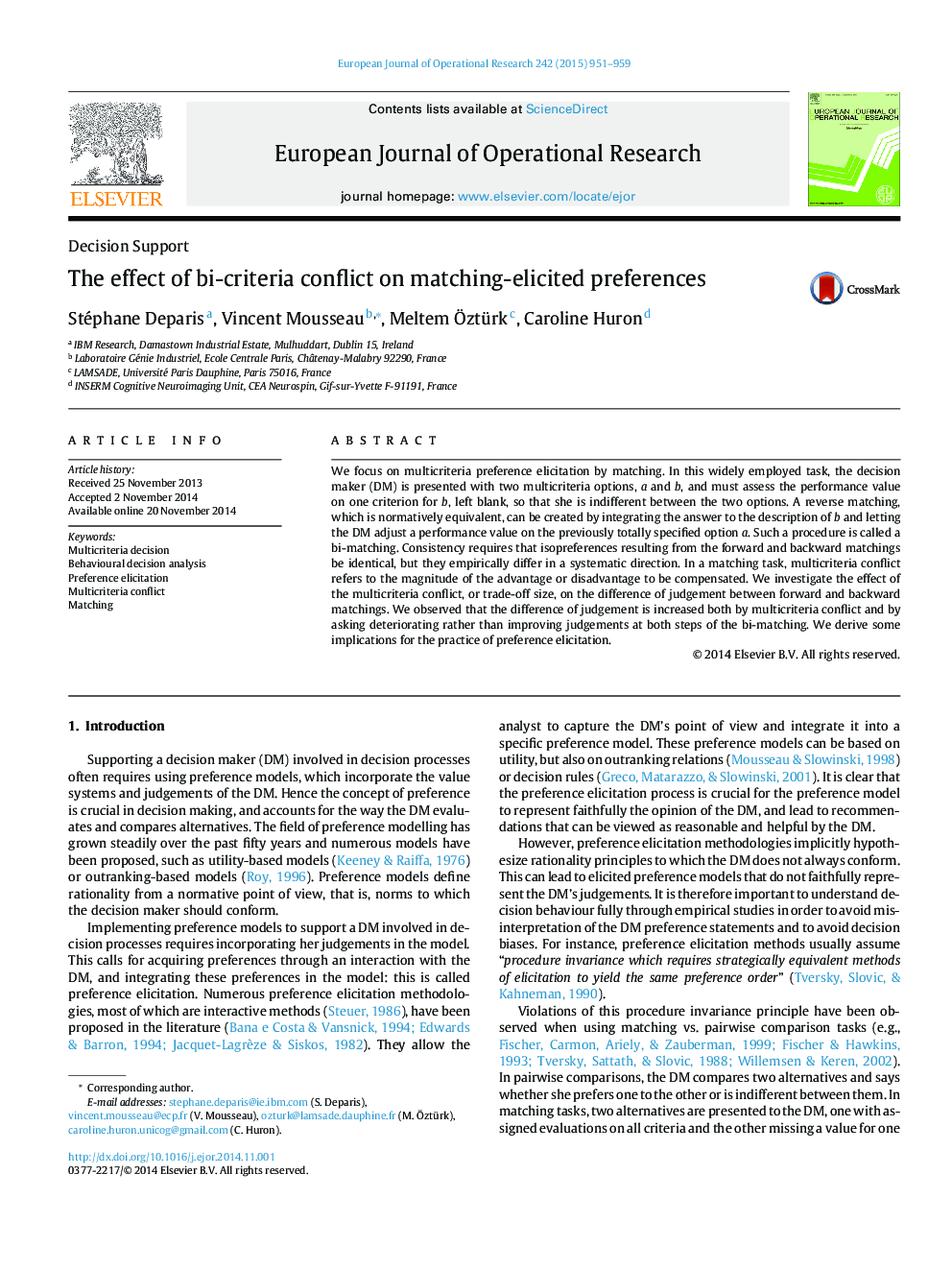| Article ID | Journal | Published Year | Pages | File Type |
|---|---|---|---|---|
| 478093 | European Journal of Operational Research | 2015 | 9 Pages |
•We focus on multicriteria preference elicitation by matching.•Each matching is associated with a normatively equivalent reverse matching.•We study the effect of trade-off size, on the asymmetry in a bi-matching.•We derive implications for the practice of preference elicitation.
We focus on multicriteria preference elicitation by matching. In this widely employed task, the decision maker (DM) is presented with two multicriteria options, a and b, and must assess the performance value on one criterion for b, left blank, so that she is indifferent between the two options. A reverse matching, which is normatively equivalent, can be created by integrating the answer to the description of b and letting the DM adjust a performance value on the previously totally specified option a. Such a procedure is called a bi-matching. Consistency requires that isopreferences resulting from the forward and backward matchings be identical, but they empirically differ in a systematic direction. In a matching task, multicriteria conflict refers to the magnitude of the advantage or disadvantage to be compensated. We investigate the effect of the multicriteria conflict, or trade-off size, on the difference of judgement between forward and backward matchings. We observed that the difference of judgement is increased both by multicriteria conflict and by asking deteriorating rather than improving judgements at both steps of the bi-matching. We derive some implications for the practice of preference elicitation.
